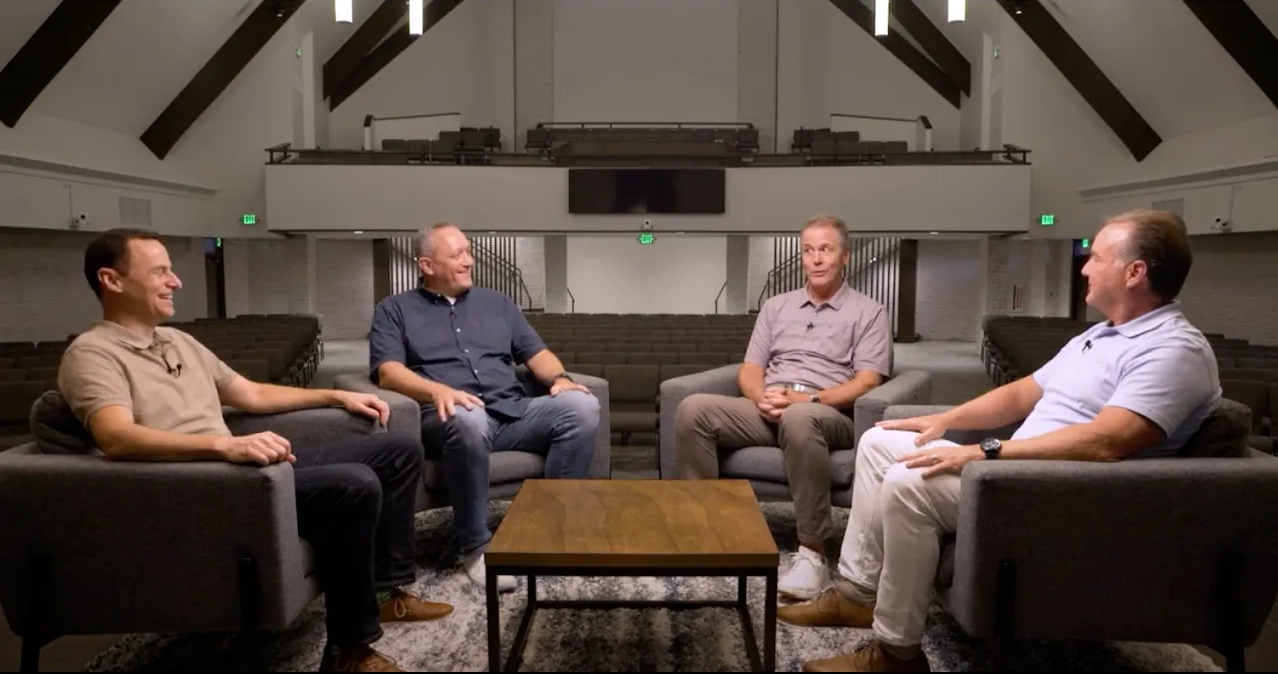If you are transitioning out of a ministry role—or considering doing so, it might be helpful to think through a few things. I recently resigned from a church that we planted in 1995 and that I pastored for 25 years. It was a huge decision and while knowing some things going into it, I also learned some things from it. These brief thoughts might be helpful to you.
DON’T LEAVE, GO
In any ministry transition, there normally exists an odd mixture of both spiritual and not-so-spiritual reasons for leaving. These could include but are not limited to:
a sense of your season of work coming to an end in this particular place
the presence of difficult people
mistakes you have made
weariness you feel
more attention needed for self, marriage, and family
financial needs
role limitations or demands
constant pressure and stress from expectations and responsibility
a new opportunity God has placed before you
a greater desire to express your gifts and skills
a new ministry need
The sense that any or all of these motivations are present is valid for considering your decision and can be used by God to determine the path ahead. The key is to be honest with yourself about what’s driving your decision. Validating hurt and disappointment or admitting failure or burnout is essential to good decision-making. We should not dismiss these concerns.
Beyond these, I believe it’s critically important that you clarify the answer to one question that rises above all others and should serve as the primary cause of your transition. That question is: “God, are you calling me to something new?” (even if you don’t know exactly what that “new” thing is). In other words, despite all other motivations, you must be sure that transitioning away from your current context is the will of God for something new ahead.
Why is this important?
1. Because we have an amazing way of confusing our will with God’s. In so doing, we blame God for our own ambitions. If you’re not clear that this transition is the will of God, you may undermine what’s ahead by placing it on the foundation of your own strength and will, rather than in God’s resources and provision. This is a recipe for failure.
2. Because leaving for the wrong reason(s) has the potential of embedding all kinds of dysfunctions into your heart: anger, bitterness, resentment, failure, self-condemnation. Remember, you take yourself with you wherever you go. If you don’t leave behind such hurt, you will take it into your next ministry situation and poison the new with the old.
3. Because sometimes God calls us to stay in negative, challenging situations. There are of course many biblical examples of this endurance. Life and ministry are not easy. God may have something to do in us and through us—even in very difficult circumstances. He calls us sometimes to stay in these situations because He has something greater to do beyond our comfort zone.
4. Because there is a difference between leaving and going. Leaving is reactionary. It’s often negative and rooted in a temporal situation or circumstance. It’s about quitting/giving up. It’s about the past.
Going is a proactive, positive, and future-oriented reality. It’s not about us (our needs, disappointments, failures, etc.); rather, it’s about God (His will, purpose, and use of us). Going raises us above the situations of this world and causes us to ask more important, eternal questions. Be sure to figure out why you’re going, not just why you’re leaving.
5. Because there are great benefits to processing this transition as from God.
You will have practiced speaking the truth to yourself. This is always good for leaders to do. This is how we learn from the past, rather than repeat negative aspects of it.
The proper conviction of following God will see you through the difficulty of change and reduce doubt.
This godly motivation will serve as the antidote to any bitterness and anger you might naturally feel. Going to do God’s will causes us to be about a future, positive purpose rather than acting out from a negative situation in our past. It helps us live in the present and future, not walk in the past.
GOD’S WILL, GOD’S WAY
It’s really important that you determine in your heart that you will take the high road in all of the different facets of this transition. You will be tempted to tell people off, speak your version of the truth, act in self-serving ways, make yourself look justified in your decision, or even hurt the church and its people as an act of revenge. No matter how negative the situation or the people, you should do nothing that would harm the Bride of Christ—no matter how flawed you may feel this church is.
Do you want to be remembered as someone scorched and bitter or as a person possessing a godly, mature, and positive disposition? Whatever you do in the end will determine what you will be remembered for in the years ahead. It’s not just enough to do God’s will. We must also do it God’s way—which means morally, maturely, ethically. Beyond how people remember you, you are also a citizen of a different Kingdom. In God’s economy, what matters to Him is your character and godly response. Don’t fall prey to the schemes of the evil one by hurting others and destroying the church for whom Christ died.
PEOPLE WON’T UNDERSTAND
When going away from a church or ministry role for what we believe is a right—God-centered motivation—many of us have the romantic idea that everyone in the church will understand our decision and celebrate it as an act of God’s hand. That won’t happen. Realistically, there will be a mixture of responses and emotions from people in your congregation.
Many will celebrate with you. Even if they’re saddened and disappointed, they will love you and support you in this decision. Some will be indifferent (and you might feel hurt by that response). Others will be outright vengeful and angry. They will assign motives to your heart that are not present and possibly even create narratives that are untrue. This is often the case because your departure highlights their wrong, what is immature and corrupt in their hearts, or what could be in error in their leadership of the church. Their anger may really be a veil for conviction and failure.
It’s important that you be prepared for all these different responses and not be idealistic about how people will react. Remember, you’re the one leaving. No matter how sensitive you try to be, there is a remaining sense that “you’re rejecting us” by deciding to go someplace else. Be empathetic with the hurt they may feel. Be secure enough to know that not everyone will understand your reasons for going. Love them anyway.
GOD’S GOT YOU
Some of you reading this are in transition and will know specifically what God has for you ahead. Others of us (my wife and myself included) do not have all the answers for the path ahead. But we believe within the mixture of all the various reasons cited above, along with the bottom line conviction that God is doing something new in us, we are on the path to where God wants us.
Some others reading this will determine, “No, God has us right here, right where we are, for now.” You’ve concluded that—while not optimal and while possibly even challenging, the Lord wants you to stay where you are and wants you to see Him work in the midst of the difficulty you may be facing.
In each of these categories are new, exciting opportunities for us to exercise faith in God and trust His provision. I just want to remind you—“faithful is He who calls you, and He will also do it” (1 Thessalonians 5:24). No transition (and no staying in place) is ever perfect. Neither are we.
Rest in the good grace of the Father. Remember, He is for you not against you. He holds all things in His hands. God will provide all things necessary for you, your family and for the achievement of His will. As things change, as people won’t understand, and as life feels insecure, be at peace dear brother and sister because God has led you to your decision of faith.
Mike Ayers is a former church planter and pastor of 25 years. He is an Adjunct Professor of Leadership Studies at College of Biblical Studies in Houston, and the author of Power to Lead: Five Essentials for the Practice of Biblical Leadership.
We’ll send one succinct weekly email
with the best news, events, and info
for churches in the Houston area
Photo by Michael Jasmund on Unsplash











How can leaders develop a healthy culture for their church staff?